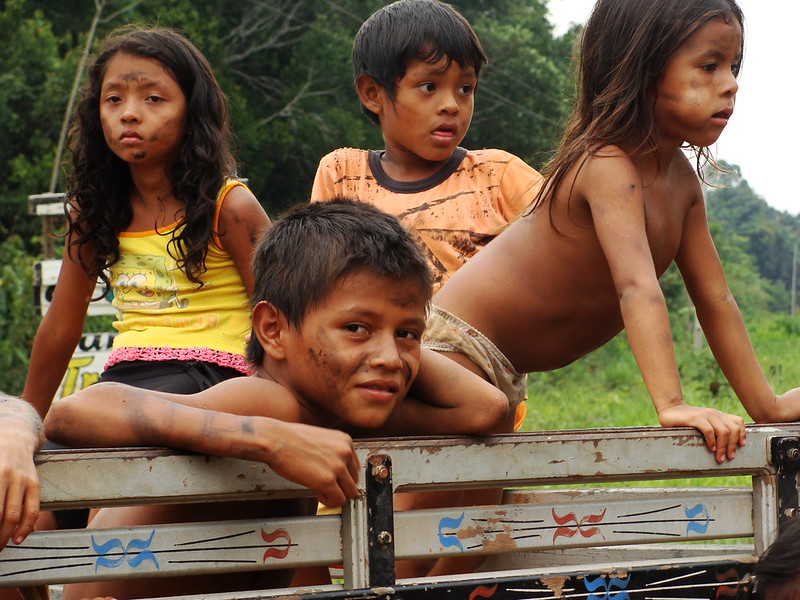ChildFund in Brazil
 Brazil is one of the largest and most populated countries in South America; it has more than 200 million people within its population. Yet, Brazil scored 48.9 on the Gini index for economic inequality and a significant proportion suffers from discrimination, and income inequality and around 24% of people live below the poverty line. ChildFund is a global charity that focuses on supporting children suffering by providing education, better access to health care or improving the cleanliness of drinking water where possible.
Brazil is one of the largest and most populated countries in South America; it has more than 200 million people within its population. Yet, Brazil scored 48.9 on the Gini index for economic inequality and a significant proportion suffers from discrimination, and income inequality and around 24% of people live below the poverty line. ChildFund is a global charity that focuses on supporting children suffering by providing education, better access to health care or improving the cleanliness of drinking water where possible.
Education and Youth
Due to the effects of COVID-19, the education system was in dire need of support, UNICEF stated that, in 2022, 2 million children from the ages of 11 to 19 had not completed basic education and had not returned after the closures from COVID-19. ChildFund in Brazil have been persistent in trying to eradicate the education system to make a more positive environment; it has started introducing awareness workshops within the community schools. Additionally, more than 12,000 young people took part in ChildFund’s “Skilled and Involved Youth” projects in 2015. The organization conducted several workshops focusing on natural disasters and violence.
There are several campaigns that ChildFund runs and networking sessions to get more young people involved in current affairs which also, opens more avenues for young people to be involved in decisions directly relating to them. ChildFund is working alongside local partners (OSPs) to encourage children to have a routine to stick to and they have several social groups that support children in several activities, such as dance and judo. OSPs have also created several play kits to support the children with art supplies and they supply the correct age-appropriate items. All of these initiatives help support the children of Brazil.
Health Care
Brazil has purposefully attempted to rebuild the health care system after the devastating disaster of COVID-19 and the government’s focus has been on achieving Universal Health Coverage (UHC). Although there are several improvements to health care and being more available there are still shortages in public funding, suboptimal resource allocation and weaknesses in health care delivery persist. Those who are most vulnerable to these issues are children, the elderly and those with terminal illnesses; thus, ChildFund aims to improve the health care systems for children. In 2015 ChildFund in Brazil created a “Taking Care of the First Years of Life” program which has benefitted more than 8,000 children in 31 different areas in Brazil, according to its website.
During the COVID-19 pandemic, it was very difficult to support people physically however, ChildFund partnered with local staff who could help them connect with families virtually and provide at-home kits for caregivers and educators. It also hand-delivered food to more than 7,700 families including baby supplies such as baby cribs and clothes.
Safe Drinking Water
There have been several severe droughts in the southeastern areas of Brazil and these conditions have created a shortage in water for agriculture and clean, drinking water for people, according to ChildFund. ChildFund in Brazil has constantly worked with local partners and organizations to have a better monitoring system in place for when these events occur and in particular making sure the water quality is clean for drinking.
According to ChildFund, it collects regular samples and tests for bacteria and any other pollution and it has created a backup system to be more prepared and also, encourage others to be aware of these issues and raise awareness. The World Food Programme (WFP) Centre of Excellence against Hunger and ChildFund in Brazil signed a partnership to promote food and nutritional security for children and find solutions to fight hunger. ChildFund has always tried to defend children’s rights and they are an important asset to building sustainable solutions for children.
– Charlotte Johnston
Charlotte is based in London, UK and focuses on Good News for The Borgen Project.
Photo: Flickr
